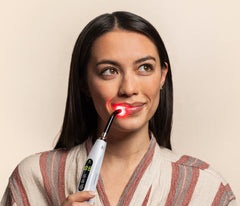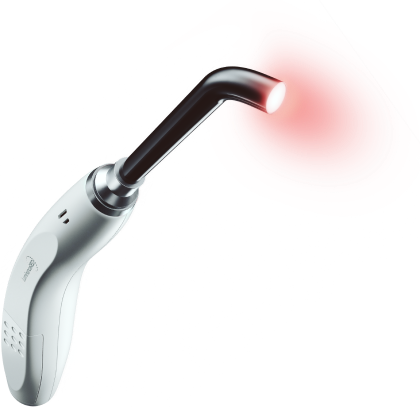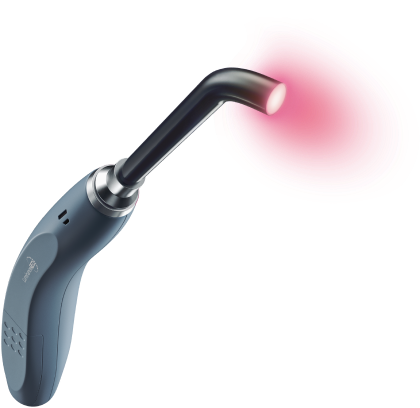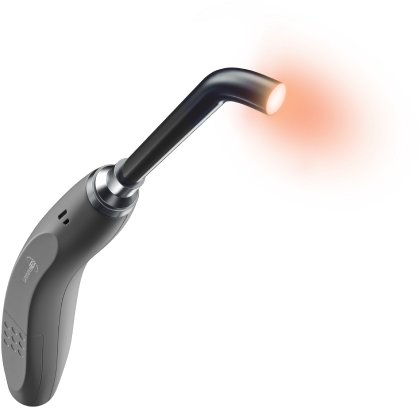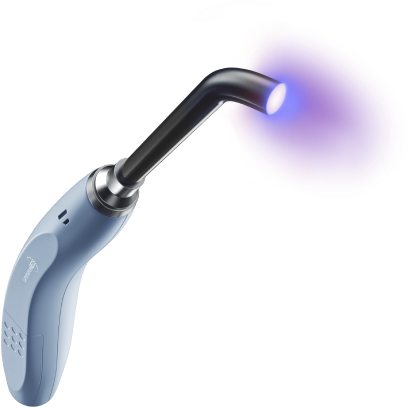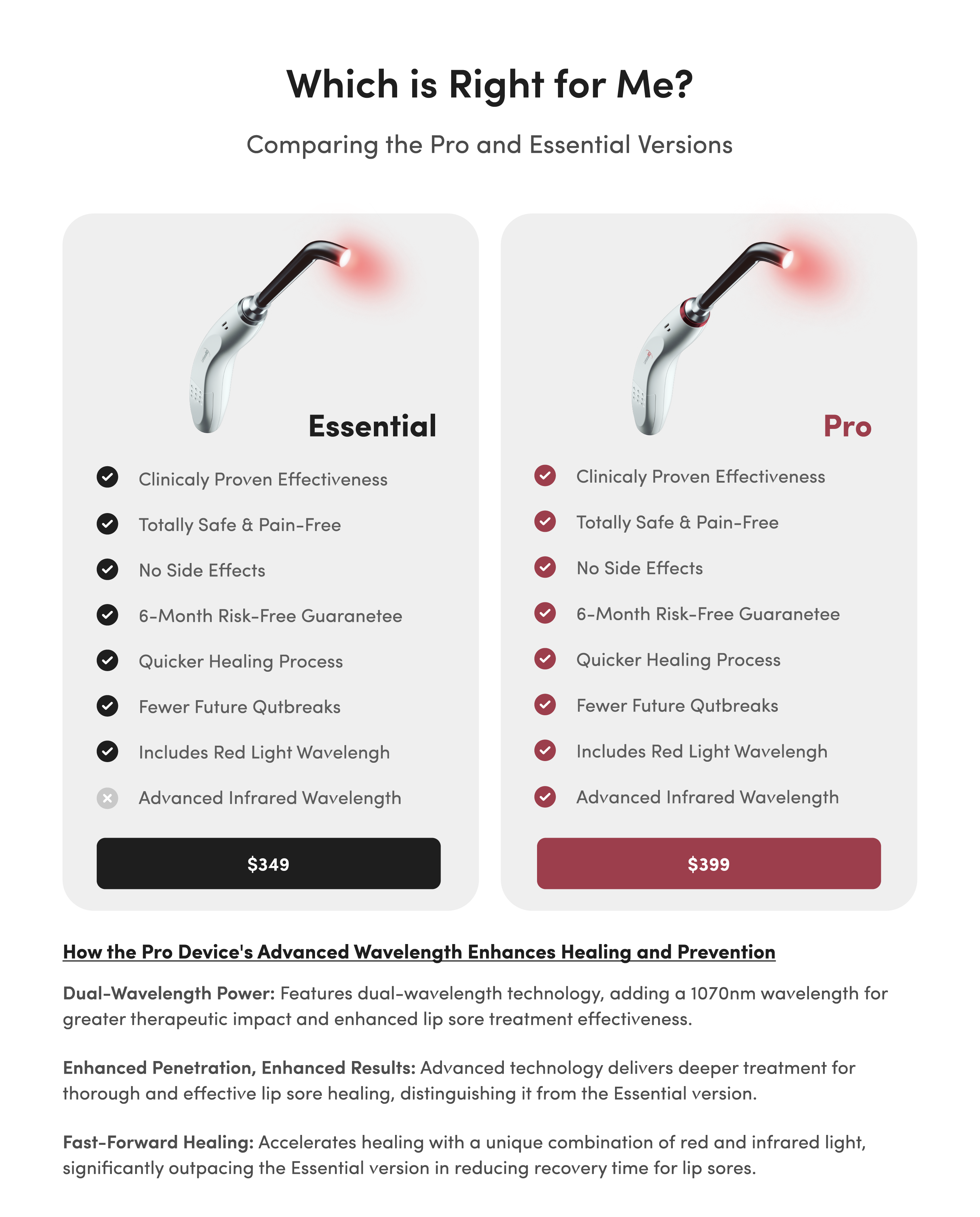Got a Cold Sore and Swollen Lymph Nodes? Here’s What to Do
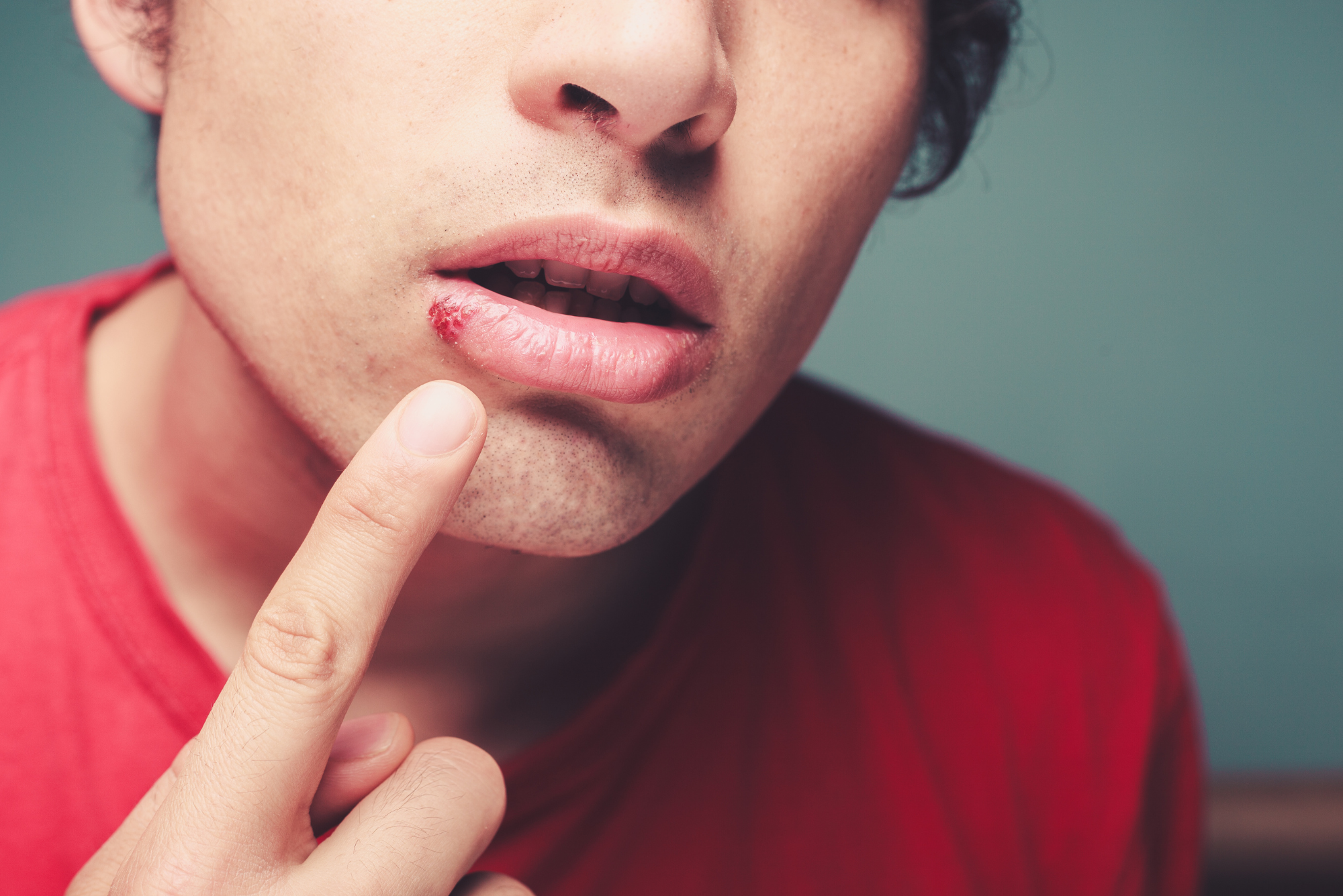
Getting sick is no picnic.
While you may already know how to care for yourself when you catch a cold or even the flu, your treatment options become more complicated when you face a cold sore and swollen lymph nodes at the same time.
Not only do you feel lousy, but a cold sore can add embarrassment to the mix, even leading to social isolation and depression.
Before you let a cold sore, swollen lymph nodes, or any other signs of illness hold you back, let’s explore what these symptoms mean and what you can do about them.
What Are Lymph Nodes?
Lymph nodes, along with their connecting lymph vessels, are part of your immune system, and they’re key players in your battle against diseases and infections.
These small, bean-shaped structures help transport a substance called lymphatic fluid throughout your body. Lymphatic fluid contains white blood cells, or lymphocytes, which help you combat bacteria, viruses, and other pathogens.
When your lymphatic system is doing its job correctly, your lymph nodes trap and filter these pathogens. If your body is fighting an infection, the natural result of this action is often swollen lymph nodes.
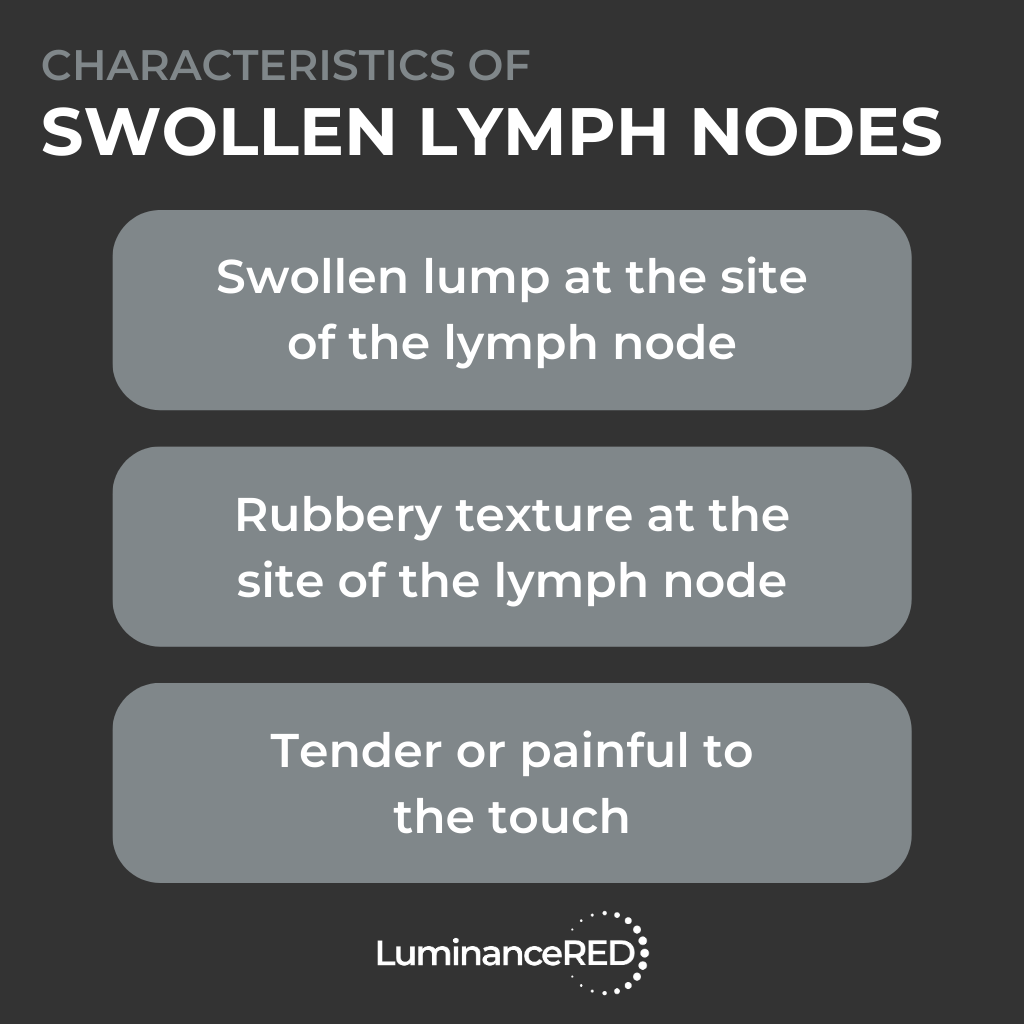
Swollen Lymph Nodes
You may already know that there are clusters of lymph nodes in your neck, chest, armpit, stomach, and groin area — the locations most likely to experience swollen lymph nodes. What you may not know is that there are approximately 600 lymph nodes located all over your body, and any one of them may swell.
A swollen lymph node is a sign your body is fighting off an infection. Here are the most common characteristics of normal swollen lymph nodes:
- Swollen lump at the site of the lymph node
- Rubbery texture at the site of the lymph node
- Tender or painful to the touch
Swollen lymph nodes indicate your body is doing its job. In some cases, this may mean fighting the virus that causes cold sores.
What Are Cold Sores?
A cold sore results from an infection with the herpes simplex virus (usually type 1, or HSV-1).
This viral infection causes small sores to form around the outside of your mouth and lips. The herpes simplex virus is highly contagious and can easily spread to others through oral contact, especially during an active outbreak.
The life cycle of a cold sore can be broken down into five stages, which occur over the course of seven to 10 days:
- Before the cold sore appears, you feel a tingling or burning sensation.
- Within 24 hours, a painful blister forms.
- The blister bursts, and the fluid within the ulcer weeps out, marking the most contagious period.
- The open sore dries up, leaving a crusty scab behind.
- The scab dries out and falls off on its own, leaving healed skin behind.
The cold sore virus is unusual in that it infects a person, causes an outbreak, and then goes dormant until a trigger reactivates it. Then the virus travels again to the skin around the mouth, resulting in additional outbreaks.
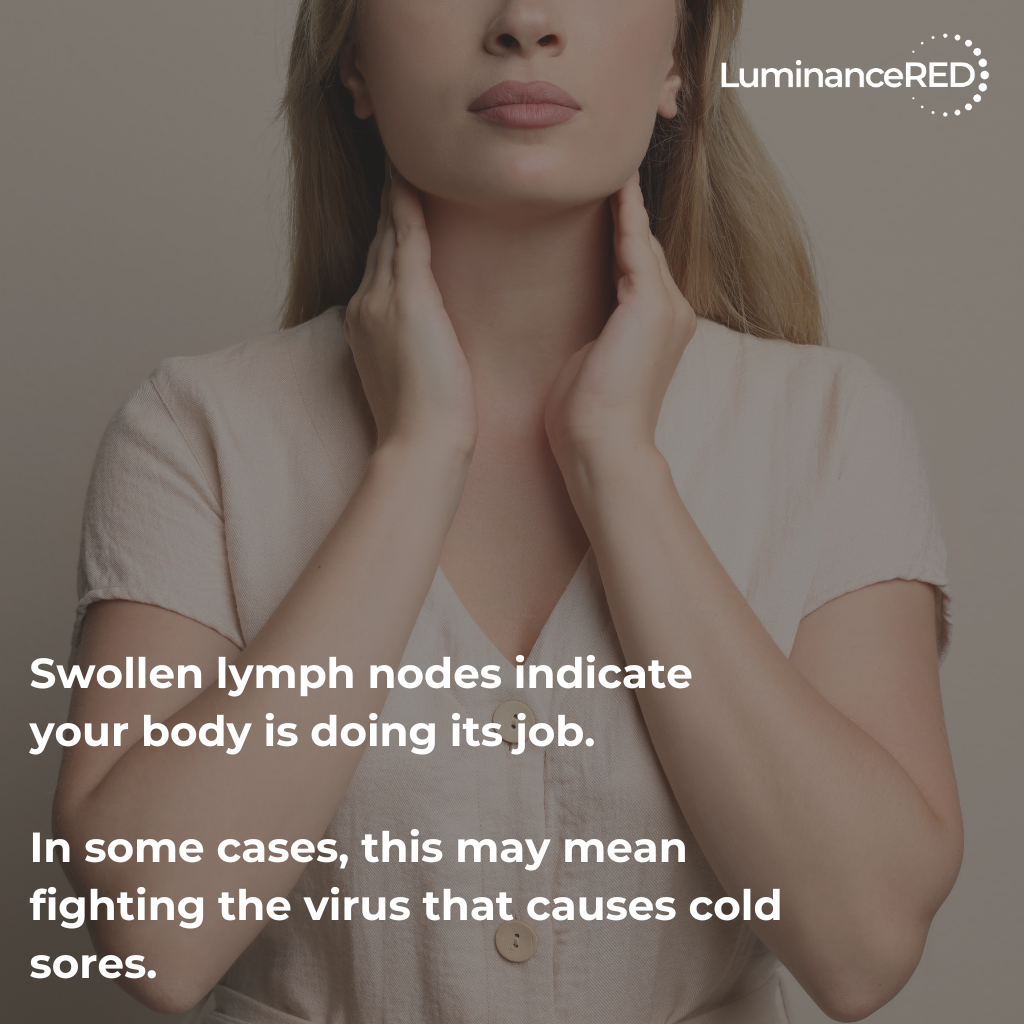
Cold Sores and Swollen Lymph Nodes
What should you do if, in addition to a cold sore, swollen lymph nodes develop? Is this something to worry about?
It’s actually common to have both a cold sore and swollen lymph nodes — particularly those in the neck — at the same time. This is especially true if it’s your first cold sore outbreak, but it can happen with subsequent outbreaks as well. This often means your body is reacting to the awakened cold sore virus and is working hard to fight the infection.
Of course, there could be another pathogen besides the herpes simplex virus weakening your immune system. If you’re not sure what’s causing your lymph nodes to swell, or if you have concerning symptoms such as pain around the lymph node, redness, or pus, contact your healthcare provider so they can investigate the problem.
Your doctor will conduct a full physical exam, including checking the swollen lymph nodes carefully. Depending on your symptoms and medical history, the doctor could decide medical tests are necessary to diagnose the issue. Blood tests, imaging studies like a CT scan, or even a lymph node biopsy can provide your doctor with more information.
The treatment your doctor recommends will depend on the outcome of the physical exam and these tests. The most likely culprit is an infection, but in some cases, swollen lymph nodes could signify something more serious, such as an immune disorder or the presence of cancer.
Cold Sores and Swollen Lymph Nodes — What Now?
If you’re sure your swollen lymph nodes are just the result of a cold sore, the best course of action is to treat the cold sore.
In addition to over-the-counter topical creams and ointments, your doctor can prescribe an antiviral medication. You can also take NSAIDs to help ease the physical discomfort you’re feeling from the cold sore or swollen lymph nodes.
Additionally, a few natural remedies can help ease the pain and discomfort of a cold sore while promoting healing:
- Cold compress
- Aloe vera gel
- Peppermint oil (diluted)
- Tea tree oil (diluted)
- Lemon balm
- Medical-grade kanuka honey
If you suffer from frequent cold sore outbreaks, always wear sunscreen when going outside. Ultraviolet rays from the sun can trigger a cold sore outbreak or make an existing outbreak worse.
Cold Sores and Swollen Lymph Nodes: Final Thoughts
When you’re dealing with cold sores, swollen lymph nodes, and their painful or irritating symptoms, you may feel like you’ve totally lost control of your health. Thankfully, there are steps you can take to address your symptoms and expedite your recovery time.
In the meantime, try to reduce your stress as much as possible. Excessive stress can lead to additional cold sore outbreaks and is likely to slow the healing process. Try your hand at meditation, deep breathing, and other mindfulness practices to soothe your soul — and your immune system.






